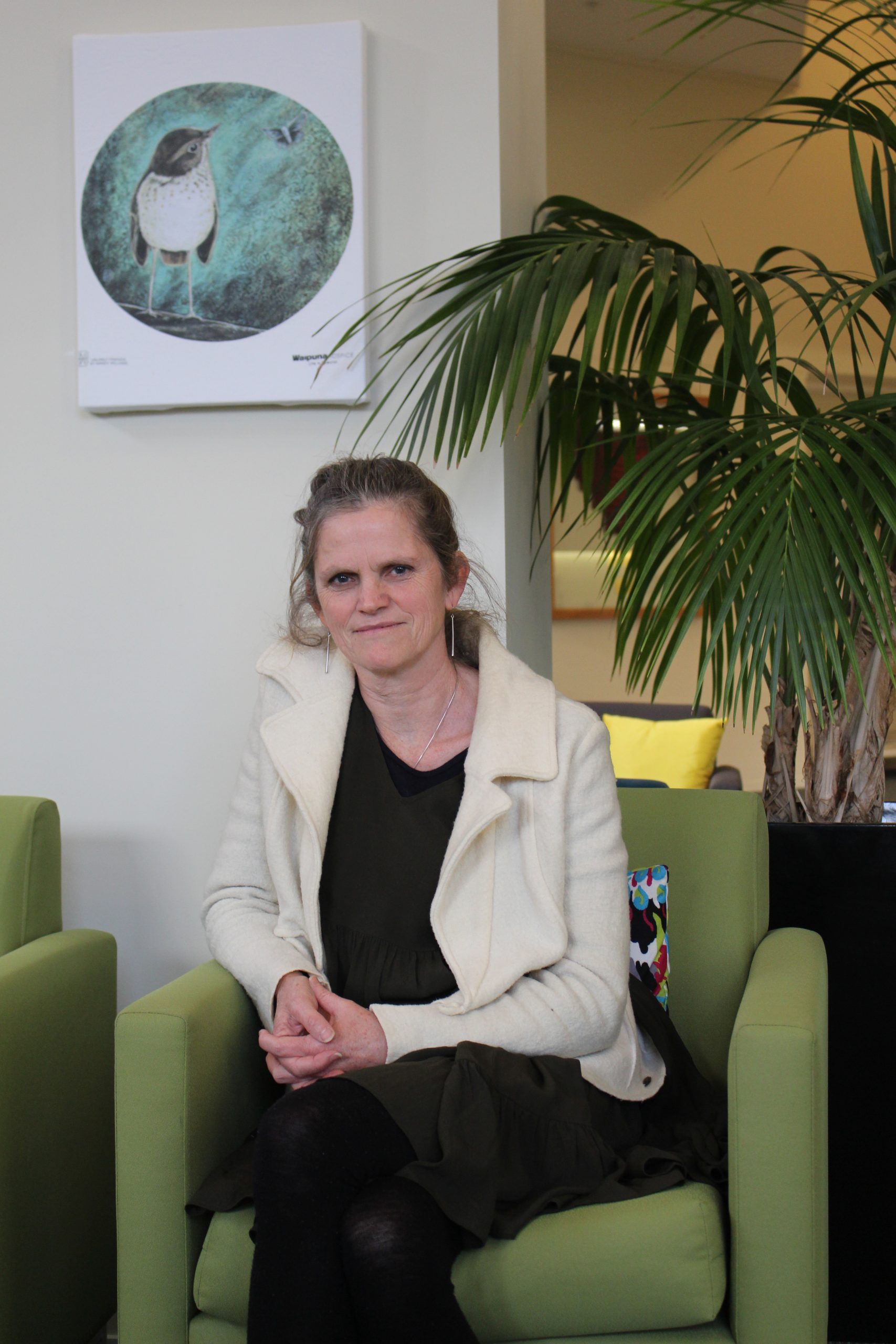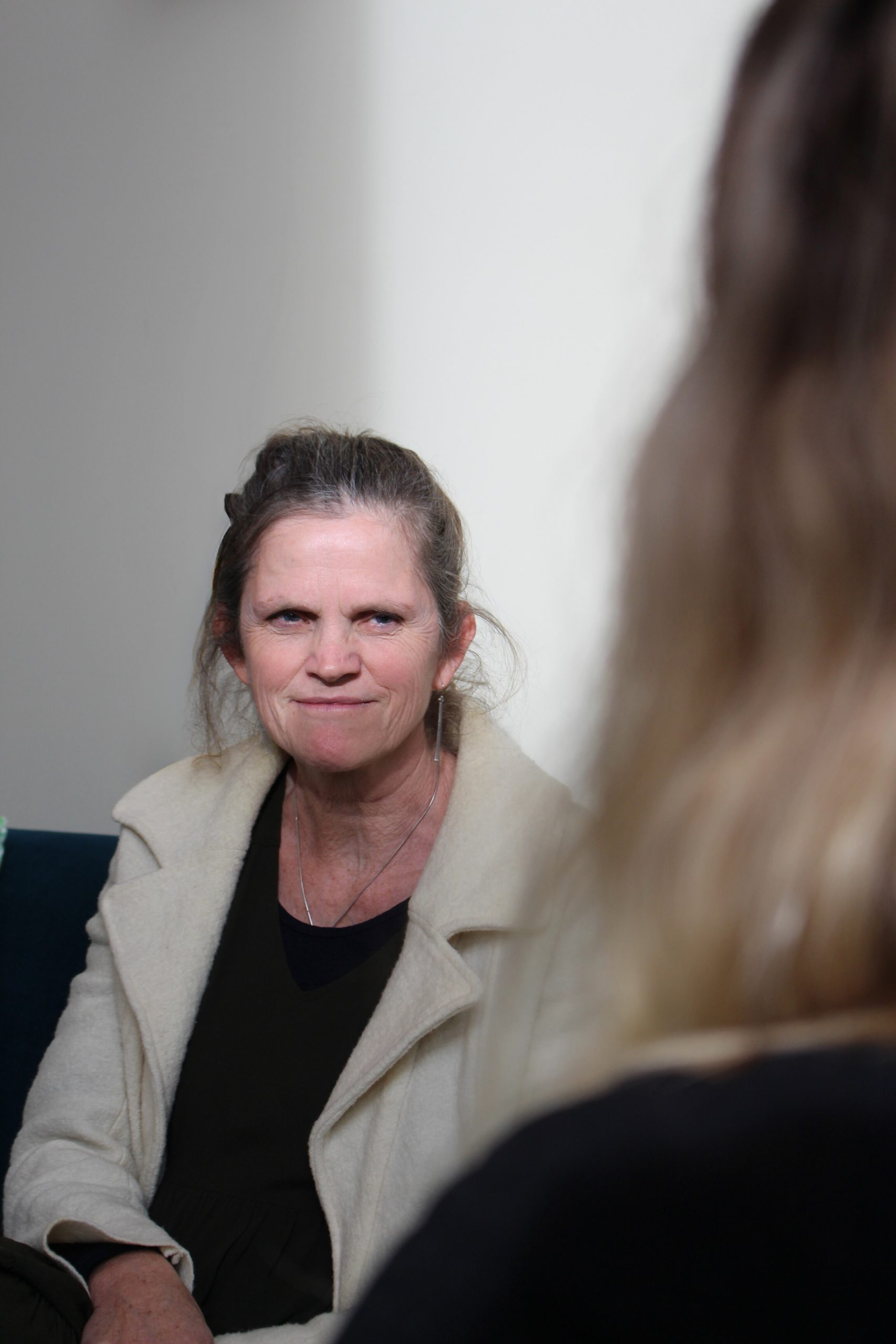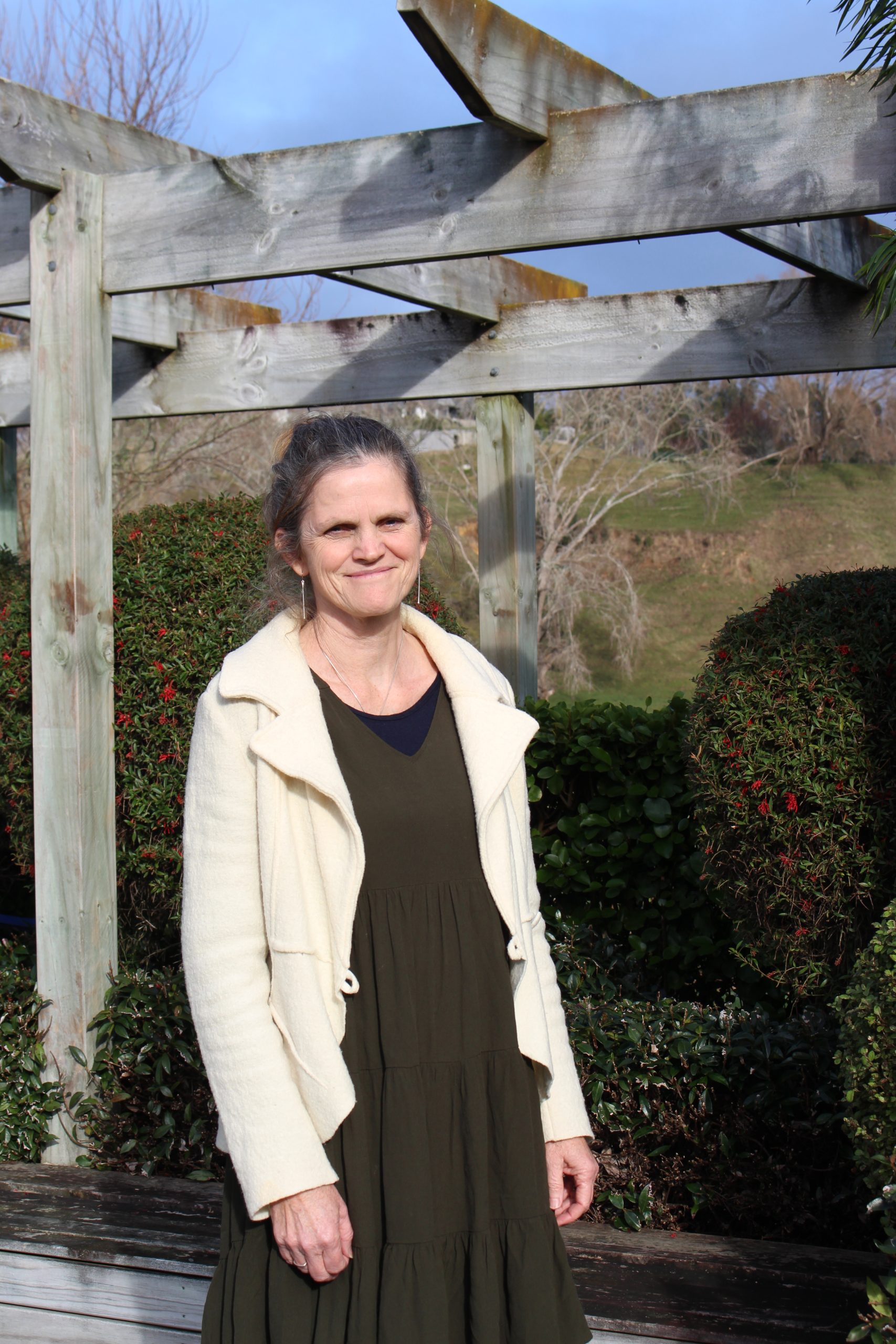“I see it as a real privilege to be in this last phase of life with people, being able to do my bit to make it as good as possible for them.”
Fieke Noteboom has been working at Waipuna Hospice for nearly five years as a Social Worker, helping patients and families navigate their end-of-life journey. We speak to her about how social work provides a framework of emotional and practical support, and what she has learned through her rewarding role.
Q. How does social work fit within palliative care for patients and support for their families?
A. Social workers recognise when people are in crisis and struggling, and when they feel alone. We help sort out problems for both patients and their families. Social workers guide people to recognise and develop their own strengths so they can cope. We reassure patients they can still have a good life, as well as a good death, in the process of dying. When patients and their whānau need resources, we access those they are entitled to, working in partnership with families, agencies, and other health professionals. Our holistic care helps people understand how the changes of loss will impact their life emotionally and physically.
Q. At what stage is social work needed in the end-of-life journey?
A. When patients are referred to hospice care, a nurse and a social worker go to the first home visit. Social workers represent family support, giving information about this service. Our social work perspective identifies people’s struggles – picking up family dynamics, anticipating needs in the near future, and the level of hospice involvement. Every individual has a different state emotionally, with diverse needs, so we may stay heavily involved, or not at all. Sometimes we come back at later stages as their needs change.
Q. How does social work at Waipuna Hospice help to ease this journey for children, and the expected worry for parents about how their children will cope?
A. Grief is not an unfamiliar concept for children because it is not limited to losing a person. Grief could be changing schools, losing friends, friends moving away, moving house, or parent separation. Children are very familiar with the concept of change. We have a child and adolescent counsellor as well as a social worker who specialises in working with younger families. They provide support to parents to guide them on how to speak with children and support them. Tapping into the practical support needed for the parents, they find physical, emotional and financial resources, as well as respite care options.



Q. What practical care does Waipuna Hospice provide?
A. People often don’t know where to start as they don’t know what’s available to them. Holding vast knowledge of community resources, social workers evaluate their current resources and needs, then provide information and send referrals. Social workers highlight practical financial support; how to access benefits, food parcels, and other entitlements. A big issue for families is talking about how they will manage looking after their loved one who is dying. It’s accessing their friends and families, support to help them cope, respite care, and so much more.
We help people talk about their options, such as whether the patient wants to stay at home or die in hospice. If the patient prefers to stay at home, we work with the family to see how this can work and what family is available, and access external support. We help look into what will work best, and at times, we may get residential care underway.
Social workers advocate for the dying person and their loved ones, ensuring they are looked after properly. We’re their voice if they need us. If we identify neglect or abuse, we involve other agencies or work out the person’s options and preferences. As a bridge between them, the hospice service and external agencies, we challenge people to improve quality of care. If the care at home is not up to standard, we challenge organisations to provide better outcomes.
Following a patient’s death, in certain circumstances, we can help organise the cleanup of a house and access affordable funeral services. Some people don’t have clear ideas of what they want and what to do. That’s where social workers come in, clarifying their wishes and problem-solving. Families are already grieving, but the stress of finding solutions can add to their grief. It’s hard to cope with stress, so this practical service can enable people to cope with loss much better.
Q. What have you learned about people undergoing and accepting significant and difficult change?
A. People are more resilient than they actually realise. Often, they have natural networks of support they can draw on. I’ve learnt people are different and people cope with end-of-life differently. That’s why it’s important we really look at the individual and identify each specific need because there’s no ‘one size fits all’ rule.
Q. What kind of skills and knowledge are involved in your role?
A. Social workers have the skills to engage and work collaboratively with dying people and loved ones, unpaid carers, and the community. We can communicate with sincerity, warmth, empathy, and concern, thus enabling difficult questions while working with people’s thoughts and feelings. We understand family wishes vary, therefore navigate family dynamics, hold family meetings, and help people see things from other perspectives. We contribute to building and maintaining therapeutic relationships, supporting people to deal with conflict, anger and frustration in a helpful manner.
When patients wish, or need, to leave the inpatient unit, discharge planning is required – determining what they want and setting up services to support the dying person and loved ones at home. We provide clear, truthful and understandable information on what’s available, work with people to plan their care, draw on their networks, and look at other resources out there. It’s important we support people in their decision-making to ensure the decisions they make are in their best interest.
We would like to thank Fieke for sharing her story with us, and our community.
If you would like to share your story, please click here.